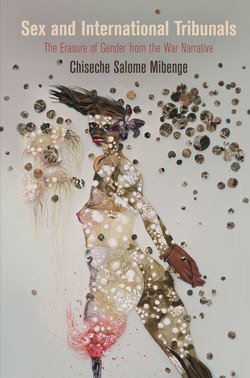Sex and International Tribunals

Реклама. ООО «ЛитРес», ИНН: 7719571260.
Оглавление
Chiseche Salome Mibenge. Sex and International Tribunals
Отрывок из книги
Bert B. Lockwood, Jr., Series Editor
A complete list of books in the series is available from the publisher.
.....
I argue in Chapter 3 that the TRC final report produces a human rights narrative of gender and violence that essentializes Sierra Leone’s culture as harmful and inherently violent toward women. Building on this argument, I pay attention to the government’s and the international community’s representation of the TRC as a restorative and indigenous model of justice and the impact this has had on the commission’s specific framing of gender and violence in Sierra Leone. In particular, I show how the report’s rights based emphasis on forced marriage and early marriage as forms of gender-based discrimination produces a problematic narrative of marriage as an oppressive institution for women. As in Chapter 2, I introduce narratives in contradistinction to the dominant narrative. I create such categories as “adulterous wives,” “cuckolds,” and “merry widows” to illustrate that women do exercise agency, even from within oppressive social structures. In this chapter, I borrow heavily from narratives produced by ethnographic researchers embedded in Sierra Leonean society whose work inadvertently but importantly disrupts the dominant legal narratives that I question.
In Chapter 5, I provide a final roundup and review of my narratives and arguments. It is important for me to add at this stage that during my field work, I came to consider all Rwandans and Sierra Leoneans, who had lived in their respective countries or even the region during any period between the outset and the close of the armed conflict, as survivors of the conflict. I use the term survivor to convey that the civilian population was disproportionately targeted for and affected by human rights violations and war crimes committed by the conflict. Despite the targeting, they survived.28 This approach in the field allowed me to avoid categorizing individuals dichotomously as either victims (women) or perpetrators (men).
.....